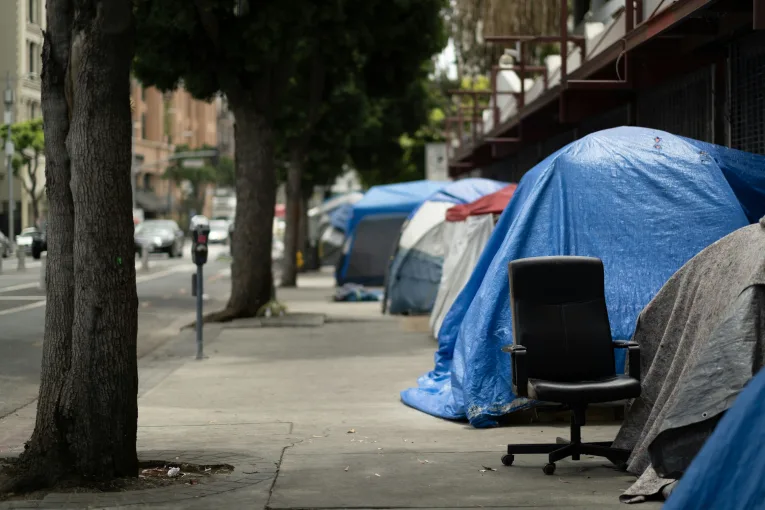
Newly-elected Sacramento County Supervisor Rosario Rodriguez recently announced a “New Chapter” for our region in her newsletter, saying she will champion “Addressing Homelessness with Real Solutions.” Even low-information voters have noticed the beggar-on-every-corner economy.
Unfortunately, she also implies that “substance abuse and mental health issues” are the causes of homelessness. Recent studies disagree, saying the problem is predominantly poverty.
Rents have been rising faster than incomes, and a monthly rental subsidy of $300 – $500 would keep most of the homeless off the street. Homeless advocates say homelessness itself creates a kind of PTSD, so just providing rent subsidies, never mind rent control, would cure a lot of the resulting mental illnesses.
Saying the homeless are crazy or addicted is a distraction. Building a billion-dollar expansion to County Jail—something Sacramento County is considering—is similarly misguided. Poverty isn’t a crime. County resources are best spent addressing the problem, not the symptoms.
In a similar vein, recent headlines announce Theft Just Keeps Getting Worse for Dollar Tree. This is even true internationally: Shoplifting in England and Wales has surged to an all-time high, with nearly half a million cases reported over the past 12 months.
That first headline means the public is poor enough that they’re stealing what could be bought for a dollar or less. Not too long ago, the Federal Reserve announced that 40 percent of the US population can’t afford a $400 emergency, 60 percent of wage earners live check to check, and 65 percent of seniors have only Social Security and Medicare to fund their retirement.
Poverty is everywhere and a real problem. Denial will not make it go away. The pseudo-solutions include blaming immigrants, applying belt-tightening austerity, and increasing policing and incarceration.
Police, who regularly roust the homeless and destroy their meager belongings, aren’t much of a solution. They aren’t even that helpful in preventing crimes. They solved 13.2 percent in California in 2022.
Poverty is at the core of our problems, and putting people in cages only makes them poorer. Sixty to 80 percent of Sacramento County Jail inmates are not convicted of anything except being too poor to afford bail. And you can bet being incarcerated and absent from a job that doesn’t pay well enough to afford bail would mean losing even that job.
One of the assumptions backing up these distractions is the notion that wealth and poverty are always deserved. That may be true to some extent, but certainly not always.
A relative who worked in philanthropy and met a lot of the “deservedly” wealthy told me that 90 percent of them were born on third base, yet they all want to act like they hit a triple.
Most people are born into circumstances they don’t deserve, and punishing them for unfortunate, systemic problems is both cruel and unfortunately, usual.
The question we need to answer as a society is whether we want to have widespread poverty-induced criminality just so we can fund more police and jails.
Never mind that the increase in petty thievery, disease, and misery would become widespread, and widespread distrust of our fellow countrymen would produce more misery and disease than we can currently imagine.